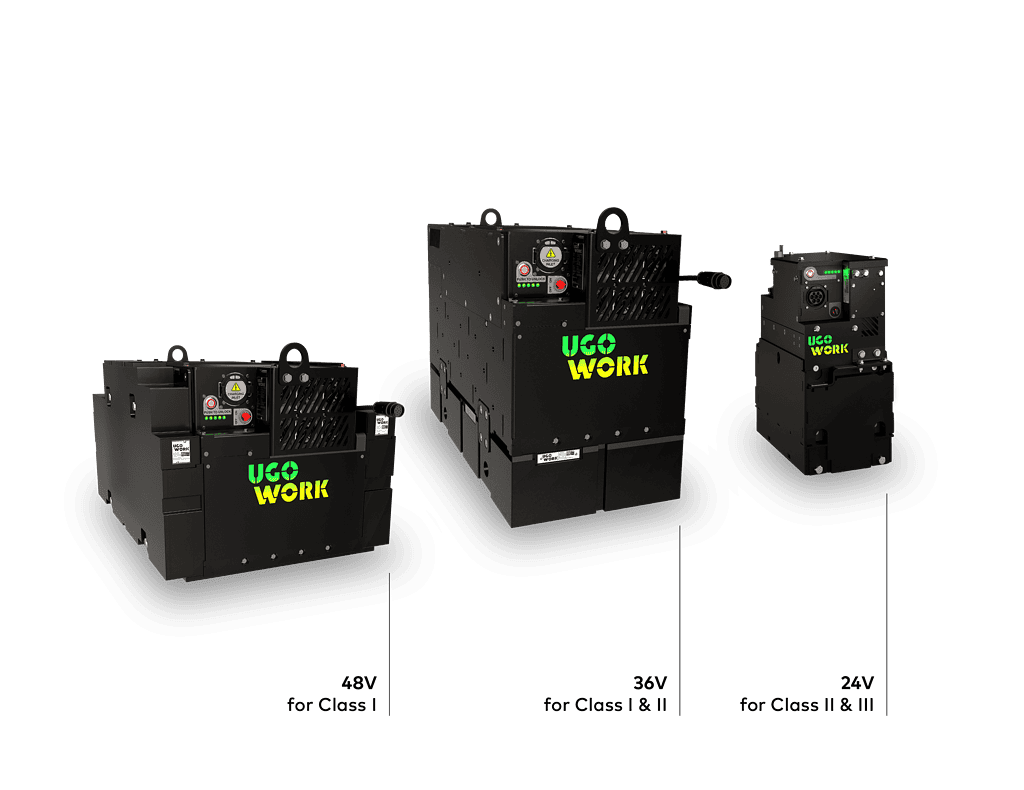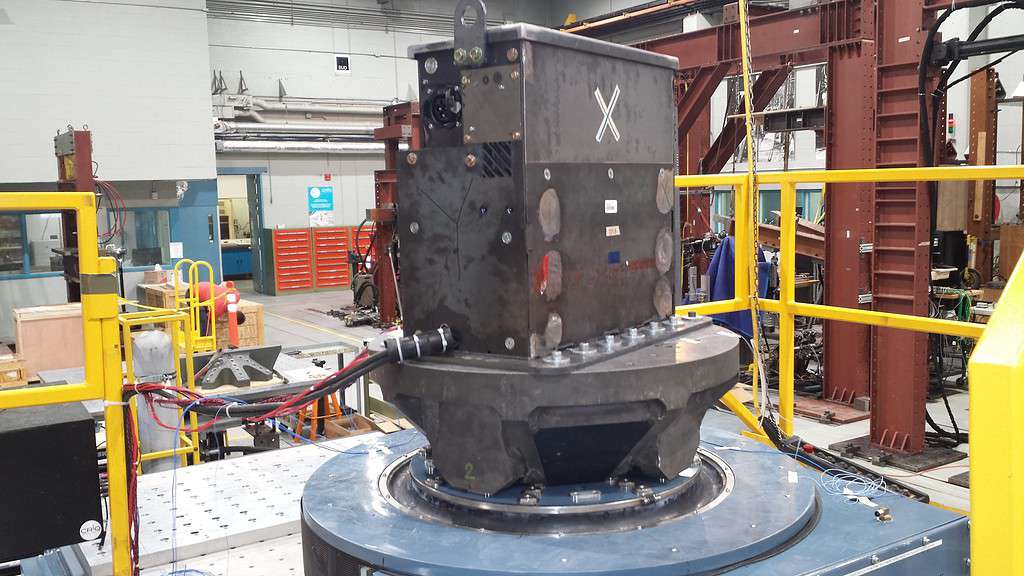5 Reasons why Lithium Batteries Are Safe for Material Handling
Over the past several years, the adoption of lithium-ion batteries in the material handling market has continued to grow as the technology becomes increasingly safe and productive. Why are Lithium-ion batteries (LiB), like UgoWork, safe for material handling applications? Let’s dive in for the details!
- Design
- Rigorous testing
- Adherence to safety standards
- Monitoring
- Experience
Design
Lithium-ion batteries manufactured by industry-leading suppliers feature top-quality lithium cells that are completely sealed, preventing harmful gasses from escaping and limiting fire hazard risks. In order to achieve improved safety and thermal runaway control, ahead-of-the-curve providers, such as UgoWork, surround cells with Phase Change Material (PCM). This process mitigates the risks of fire propagation as every individual cell is isolated in the PCM membrane. These advanced manufacturing processes were designed to provide operators with the maximum level of safety. In addition, because lithium-ion batteries do not contain acid, hazardous spills from operating lead-acid batteries are no longer a concern.

Rigorous testing
To meet the increasingly stringent safety standards, companies are becoming more technology agnostic, which means they do not have a specific lithium chemistry in mind, whether it’s LFP, NMC and LTO to name a few. These companies are responsible for their products and therefore perform a variety of tests, from drop testing and vibration to fire propagation and nail penetration. All of these tests ensure clients can benefit from the most high-performance, reliable and safest solution there is.
Each battery platform undergoes thorough quality control procedures and tests to ensure it exceeds industry standards. At UgoWork, this is achieved by integrating a highly accelerated life test (HALT) in the product development process. The HALT uses accelerated stress conditions that simulate the full life of the product and beyond; design teams can therefore validate the reliability of the battery as well as identify weak links and carry out corrections to their designs.

Adherence to safety standards
To ensure maximum safety, the most rigorous battery manufacturers have their products tested and certified by independent organizations. For UgoWork products, certifications include:
- UL 1642 for the lithium cells
- UL 991 / UL 1998 for the battery management system (BMS)
- UL 2580 for the overall battery
- UN 38.3 for the battery cells
UL 2580 [1] addresses the safety of the battery system, charging system, electric motors and other electrical parts. The UL 2580 certification program includes testing and certification for UL 991 (Standard for Tests for Safety-Related Controls Employing Solid-State Devices) and UL 1998 (Standard for Software in Programmable Components). It includes among others:
- Fire propagation testing
- Drop testing
- Crush testing
- Vibration and shock testing
The industry relies on UL for product safety standards, but forklift manufacturers also have their own level of certification to ensure that the truck-battery combination is safe.
As LiBs are now a key part of the automotive industry, much testing is conducted by many agencies to ensure appropriate safety measures are implemented.
According to a 2017 study from the National Highway Traffic Safety Administration (NHTSA) [2], lithium-ion battery systems show great promise for automotive and other vehicular applications, and are already being used successfully in a wide range of vehicle platforms. Regarding the risk of electrochemical failure, the report concludes that the propensity and severity of fires and explosions from the accidental ignition of flammable electrolytic solvents used in Li-ion battery systems are anticipated to be somewhat comparable to or perhaps slightly less than those for gasoline or diesel vehicular fuels. The overall consequences for Li-ion batteries are expected to be less because of the much smaller amounts of flammable solvent released and burning in a catastrophic failure situation.
Monitoring
Even with the best chemistry, battery pack design and testing, a lithium-ion battery would be nothing without a battery management system (BMS). The BMS monitors cell temperatures and various other metrics such as current and voltage, to ensure they remain within a safe operating range. The BMS interfaces with a number of other on-board systems. It also manages rapidly changing charge/discharge conditions as the forklift travels as well as lifts and receives regeneration power. Obviously, all of these happen in harsh and uncontrolled environments.
Some lithium batteries are also equipped with a cooling and heating system to ensure the cells in the battery operate in a stable environment, thereby eliminating the chances of temperature-related problems.
In addition to the BMS, some of the most innovative manufacturers equip their batteries with IoT devices. Such devices allow for detailed battery information to be sent to cloud-based data centers. Data is then automatically analyzed so that alerts for immediate attention and service support can be carried over if necessary, adding an extra layer of safety and proactivity
Experience
The past is a good predictor of the future. At this point, the LiB market keeps expanding; this proves that LiB companies have enough experience to provide safe products. Organizations should work with energy providers with proven experience and get feedback from existing clients before selecting a specific solution. After all, the smooth running of their operations is in the balance.
Overall, most lithium battery providers deliver a product with many years of testing, iterative improvements and tons of operation time that meet the highest level of safety.
Contact our experts to discuss the opportunities of Lithium to power your truck fleet.




